Tips on Tough Job Interview Questions

During an interview, the interviewer may throw a curveball your way with a tough question that you may not know how to answer. While these tougher questions may seem out of left field at best, or silly at worst, it is important to maintain your professionalism and answer them accordingly. Even if you have a stellar resume, how you answer a tough question is just as important as what you say when you give your answer. Here are some tips on how to handle some of the tough interview questions out there.
“What is Your Greatest Weakness?”
The key to handling this tough interview question is to give an answer that doesn’t make the interviewer’s job easy for them by giving them permission to reject your application. You always want to remain upbeat in an interview, focusing on your strengths. But how do you focus on your strengths when they’re literally asking you about your weaknesses? One thing you definitely don’t want to do is say that you “don’t have any.” Everyone has a weakness, and the interviewer, of course, knows this. The key is to pick out something positive about yourself that you might see as a negative but that employers might see as a positive. For instance, if you say “I tend to put my job over my personal life,” this tells the employer that you are a hard worker, perhaps at times to your own detriment. It’s a weakness, yes, but it’s also a strength.
“Tell Me About Yourself.”
This is one of those tricky questions because: a) it doesn’t even seem like a question – more like an icebreaker, and b) it’s easy to get wrapped up in this one and drone on and on forever. The interviewer is not looking to have a friendly conversation before the interview proper. He or she simply wants a two-to-three-minute summary of your experience thus far and a reason why you are the only person for the job. If you’re overwhelmed by the question and unsure how to answer it, think of it instead as “tell me something unique about yourself.” Give the interviewer a quick summary of your experience and education, as well as one strong quality that you have learned thus far to help you in your career. For instance, you can say something like “my business degree, coupled with my experience as a Hospital Director, has made me a strong leader, and I am confident my leadership skills could also carry me far in this role.”
“Why are You Looking to Leave Your Current Job?”
Even if you’re leaving your current job because your boss is a lot to handle, or you haven’t received a raise in five years, you never want to give these as your reasons. Remember to stay positive and upbeat with every answer you give. And also remember, how you talk about your current employer may be how you talk about your prospective employer one day – and your prospective employer knows this. The best way to answer this one is to focus on the positives of the job you’re applying for. You can never go wrong with expressing your desire to pursue a more challenging opportunity. Also, remember to keep your tone upbeat, too. If your real reason for leaving your current job is because you are desperately unhappy, the interviewer will be able to tell and may fear you’ll do the same thing to them in six months.
“Do You Have Any Questions for Me?”
The answer to this tough interview question is always “yes.” You must always have questions prepared for the interviewer. Else, it looks like you don’t really care about the company and that you are only interested in a paycheck. Even if this is true, you certainly don’t want to convey it to the interviewer. Ask questions that you could not have answered yourself with a quick online search. Lazy questions are just as bad as not having questions prepared at all. Ask the interviewer questions that no one but he or she could answer, such as “what do you like about working for the company?” or “can you describe the company culture?” You want to ask about two or three questions total. Three is often better, but you can usually gauge from the interviewer whether to ask that third question or stick to the two.
Riddles
You’ve made it to the end of your interview, and you know you aced it. Then the interviewer asks you something incredibly odd and out of left field, like “how many ping-pong balls can you fit inside of a minivan?” or “how many marshmallows can you fit inside of an airplane?” This is another one of those situations where they’re looking for how you answer as much as, or more than, what you answer. Rather than acting cute, stick to logic. Try to come up with an honest solution to this question, no matter how ridiculous it may seem to you. The interviewer is testing your ability to be a problem-solver, and snark is just not going to fly here.



